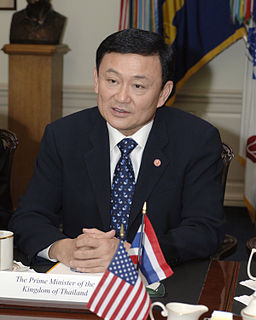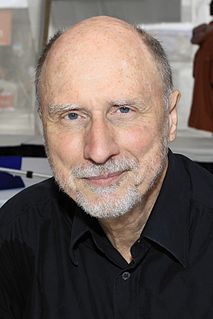A Quote by Billy Collins
Form is any aspect of a poem that encourages it to stay whole and not drift off into chaos.
Related Quotes
I keep feeling that there isn't one poem being written by any one of us - or a book or anything like that. The whole life of us writers, the whole product I guess I mean, is the one long poem - a community effort if you will. It's all the same poem. It doesn't belong to any one writer - it's God's poem perhaps. Or God's people's poem.
The subject of the poem usually dictates the rhythm or the rhyme and its form. Sometimes, when you finish the poem and you think the poem is finished, the poem says, "You're not finished with me yet," and you have to go back and revise, and you may have another poem altogether. It has its own life to live.
The whole drift of our law is toward the absolute prohibition of all ideas that diverge in the slightest form from the accepted platitudes, and behind that drift of law there is a far more potent force of growing custom, and under that custom there is a natural philosophy which erects conformity into the noblest of virtues and the free functioning of personality into a capital crime against society.
A nap is not to be confused with sleeping. We sleep to recharge our bodies. We nap to care for our souls. When we nap, we are resting our eyes while our imaginations soar. Getting ready for the next round. Sorting, sifting, separating the profound from the profane, the possible from the improbable. Rehearsing our acceptance speech for the Nobel Prize, our surprise on receiving the MacArthur genius award. This requires a prone position. If we're lucky, we might drift off, but we won't drift far. Just far enough to ransom our creativity from chaos.
Natural writers will often try to force themselves into a form - novel, story, screenplay, or poem - that is not necessarily the appropriate form for the way they see the world... if, in fact, they are writing from the artist's impulse, which is a deep, inchoate vision of some sort of order behind the apparent chaos of life on planet earth, they'll be driven then to express that vision in the creation of the object - the art object.
Poetry is perhaps the oldest art form. We can go back to an age-old idea of naming things, the Adamic impulse - to give something a name has always been an immensely powerful thing. To name something is to own it, to capture it. A poem is still a kind of spell, an incantation. Historically, a poem also invoked: it was a blessing, or a curse, or a charm. It had a motile power, was able to summon something into being. A poem is a special kind of speech-act. In a good poem there's the trance-like effect of language in its most concentrated, naked form.




































